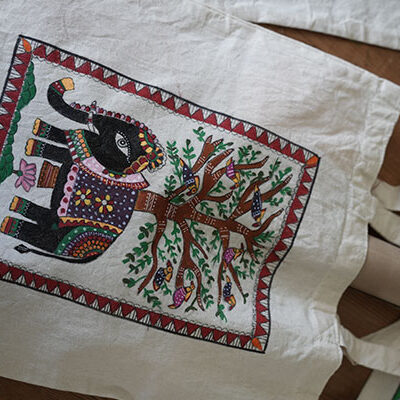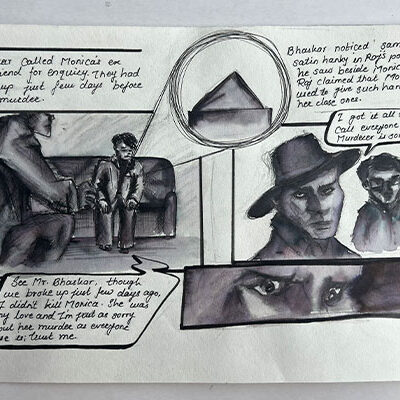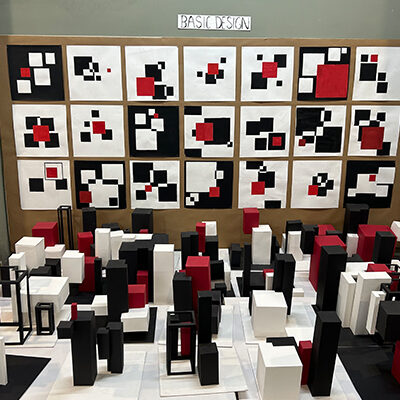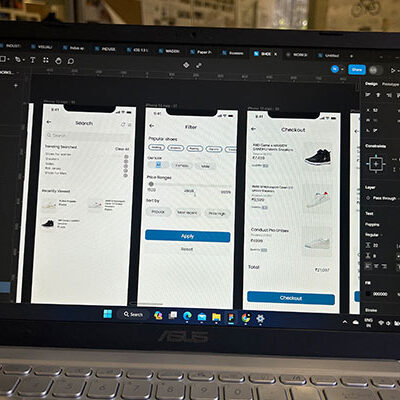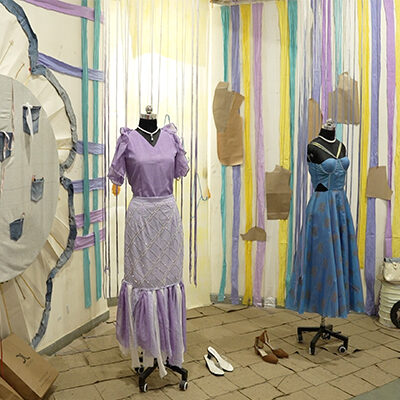M.Des in Textile Design
Embark on an enriching journey into the world of creative textiles with our Master of Design in Textile Design program (M.Design in Textile Design) at Indus School of Design. Renowned for its commitment to innovation and craftsmanship, our Masters in Textile Design Program offers a dynamic curriculum blending traditional techniques with cutting-edge technology. Led by industry experts, students delve into the art and science of textile creation, exploring concepts such as pattern development, fabric manipulation, and surface embellishment. From weaving to digital printing, students engage in hands-on studio projects, collaborative workshops, and industry internships, honing their skills as versatile and visionary textile designers. Join us and unlock your creative potential, shaping the future of textile design with our M.Des in Textile Design Courses, where imagination meets innovation to redefine the boundaries of textile excellence.
What you must learn to become a Textile Designer?

To become a proficient Textile Designer, you must acquire a diverse range of skills and knowledge. Firstly, understanding textile fundamentals such as fibre properties, weaving techniques, and fabric construction is essential for creating innovative and functional textiles. Proficiency in design principles, including colour theory, pattern development, and motif creation, allows for the creation of visually appealing and cohesive textile designs. Mastery of Textile Printing Techniques, such as screen printing, digital printing, and dyeing methods, enables the translation of design concepts onto fabric surfaces effectively. Additionally, familiarity with textile manufacturing processes, quality control standards, and industry trends is crucial for producing textiles that meet market demands and specifications. Strong creativity, problem-solving skills, and attention to detail are essential attributes for exploring new techniques and pushing the boundaries of textile design innovation. Furthermore, effective communication and collaboration skills are necessary for working with clients, manufacturers, and other stakeholders throughout the design process. Staying updated on emerging technologies, sustainability practices, and global market trends ensures relevance and competitiveness in the dynamic field of textile design.
Key Learning Areas
1. Advanced Design Concepts: Explore innovative design ideas, grasp fashion aesthetics, and cultivate your unique design identity to create original and compelling textile designs.
2. Textile Technology: Gain knowledge in fabric selection, understand textures, and master the art of blending materials to innovate and create new and dynamic textile designs.
3. Garment Construction: Learn the technical intricacies of bringing designs to fruition, including pattern making, sewing techniques, and finishing touches, ensuring your designs are not only visually appealing but also functional and well-constructed.
4. Trend Analysis: Stay ahead of industry trends by learning how to anticipate, analyse, and interpret fashion trends, enabling you to create textiles that resonate with contemporary market demands.
5. Sustainable Fashion: Embrace eco-friendly practices and understand the importance of sustainability in the fashion industry, incorporating sustainable techniques and materials into your textile design process.
6. Digital Design Tools: Utilize industry-standard design software to enhance your creativity and efficiency in textile design, enabling seamless integration into the digital landscape of fashion.
7. Fashion Photography and Styling: Understand the fundamentals of fashion photography and styling, learning how to visually communicate and showcase textile designs effectively through captivating imagery and styling techniques.
8. Fashion Illustration and Portfolio Development: Hone your skills in fashion illustration to visually communicate design concepts and create a compelling design portfolio that showcases your creativity, technical abilities, and design philosophy.
9. Fashion Psychology and Consumer Behavior: Explore the psychological aspects of fashion, including consumer behavior and its influence on trends, brand loyalty, and purchasing decisions, allowing you to create textiles that resonate with your target audience.
Career Paths
- Textile Designer
- Fashion Designer
- Textile Print Designer
- Surface Pattern Designer
- Colorist
- Textile Technologist
- Textile Product Developer
- Trend Forecaster
- Textile Buyer or Merchandiser
- Entrepreneur/Small Business Owner



